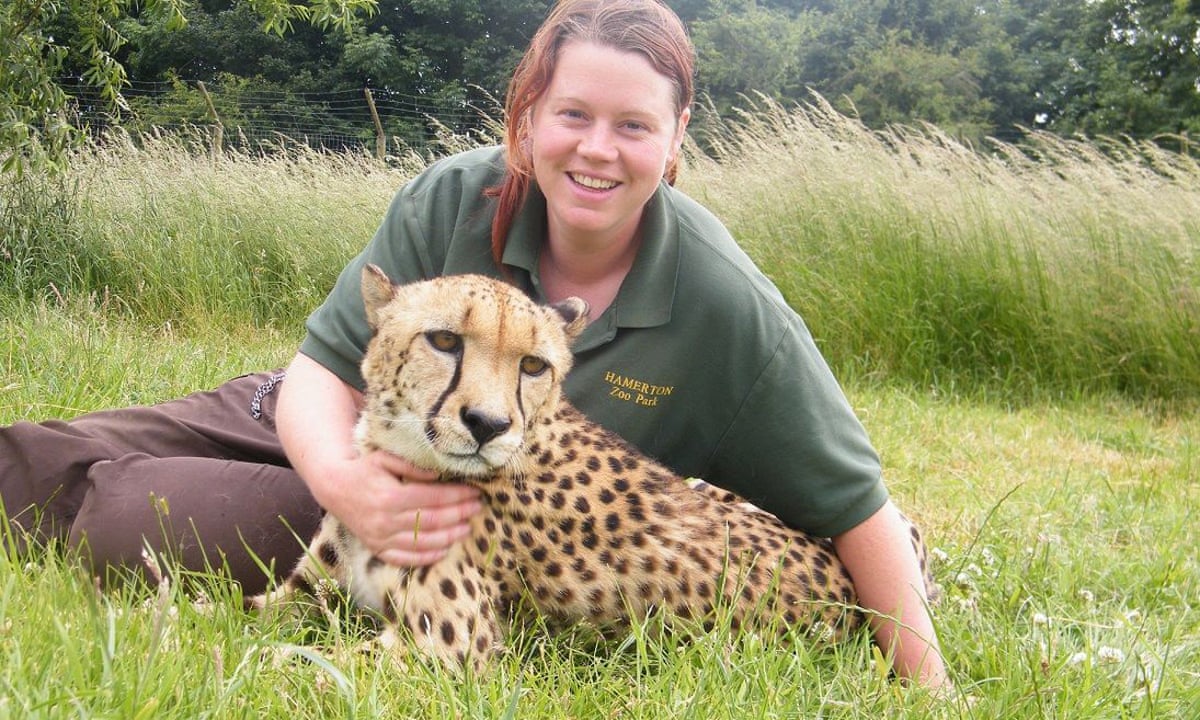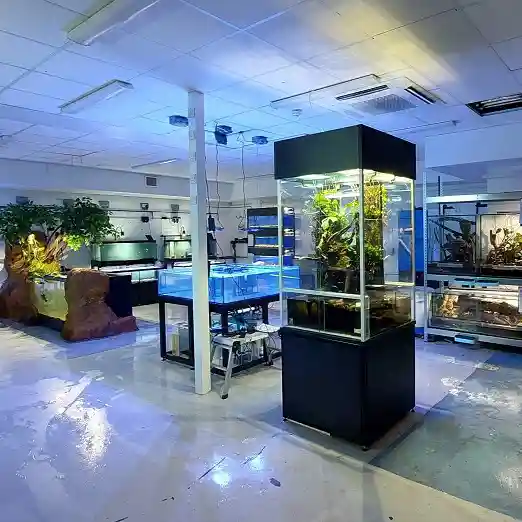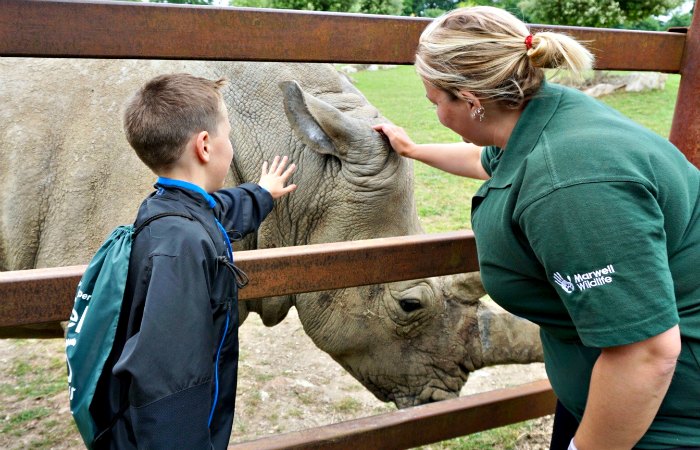견적문의
페이지 정보
작성자 Malcolm 댓글댓글 0건 조회조회 193회 작성일작성일 25-06-15 14:54본문
| 회사명 | EJ |
|---|---|
| 담당자명 | Malcolm |
| 전화번호 | SR |
| 휴대전화 | SQ |
| 이메일 | malcolm.stagg@gmail.com |
| 프로젝트유형 | |
|---|---|
| 제작유형 | |
| 제작예산 | |
| 현재사이트 | |
| 참고사이트1 | |
| 참고사이트2 |
"The achievement of a country and its ethical progress can be evaluated by the way its animals are treated." - Mahatma Gandhi
Do you like animals and imagine operating in a zoo? Zoo keepers are type in protecting wildlife and taking care of animals. At locations like the Zoological Society of London (ZSL), over 20,000 animals get the care they require from experts.
To become a zoo keeper, you require hard work, education, and a love for animals. This job is amazing, letting you work with lots of species and assist with essential conservation work. If you're into wildlife or animal welfare, zookeeping might be best for you.
Beginning your zoo keeper career indicates learning what's required. This guide will cover education, experience, and more. It's all you require to know to start a satisfying zookeeping career.
Comprehending the Role of a Zookeeper
Exploring what a zookeeper does reveals a function filled with obstacles and rewards. They concentrate on animal welfare and preservation. Zookeepers work hard to keep animals healthy and pleased in their care.

Daily Responsibilities and Tasks
A zookeeper's day is filled with crucial jobs:
- Preparing meals that meet each animal's nutritional requirements
- Cleaning up enclosures to keep them clean and safe
- Supervising animal health and behaviour
- Providing medicines and treatments as needed
- Developing activities to keep animals psychologically sharp
Working Environment and Conditions
Zookeepers work outside in all sort of weather condition. They handle both indoor and outside areas. The task needs being healthy and able to handle the needs of taking care of animals.
"Being a zookeeper is more than a job - it's an enthusiastic commitment to animal care and preservation."
Types of Animals and Specialisations
Zookeepers can specialise in lots of animal groups:
- Primates
- Big cats
- Marine mammals
- Reptiles
- Birds
Your function might involve dealing with 2-5 different animal species. This needs a lot of understanding and the capability to adapt.
Essential Skills and Personal Qualities for Zoo Keeping
To be a leading zookeeper, you need more than simply a love for animals. Your job will be difficult and require you to handle animals and individuals well. You'll likewise require to comprehend animal behaviour.

What zoos try to find in people consists of:
- Exceptional patience and emotional strength
- Strong fitness and stamina
- Eager observation skills
- Capability to stay calm under pressure
- High level of compassion towards animals
Getting hands-on experience is key to mastering this role. You'll need to show:
- Advanced understanding of animal care techniques
- Efficiency in animal handling and security protocols
- Effective interaction with both animals and human visitors
"A great zookeeper links science, empathy, and preservation in every interaction with animals."
You ought to learn about animal nutrition, behaviour, and standard veterinarian care. Most zookeepers learn through training, offering, zookeeper and continuous knowing.
Zookeeper work is not simply a task. It's a huge commitment to teaching about wildlife and assisting preservation. Your enthusiasm and hard work will make you stand zookeeper apart in this satisfying career.

How to Become a Zoo Keeper
Beginning a career as a zookeeper requires careful preparation and education. You should first comprehend the educational needs and training courses. These will turn your love for animals into a task.
Educational Requirements
To be a great zookeeper, you need a strong scholastic base. A lot of tasks try to find certain qualifications:
- At least 5 GCSEs at grade 4 or above, consisting of English, mathematics, and science
- A levels or higher education qualifications
- A college degree in biology or animal science
- Level 3 Diploma in Animal Management
Needed Certifications
Getting special accreditations can actually help you in your zookeeper profession. Important ones include:
- Diploma in Management of Zoo and Aquarium Animals (DMZAA)
- Zookeeping Level 3 Diploma (RQF)
- Animal dealing with certificates
- Emergency treatment certifications
Training Programs and Apprenticeships
Getting hands-on experience is type in zookeeper training. Many places provide great chances:
- Unpaid apprenticeships at wildlife parks
- Internship programs at widely known zoos
- Practical training at locations like Colchester Zoo and Dartmoor Zoo
- Offering to get real-world abilities
Pro idea: Create an in-depth portfolio to show your animal care abilities. It will help you in task applications.
Building Relevant Experience in Animal Care
Getting hands-on experience is key for those wishing to be zookeepers. The job is extremely competitive. So, it's important to begin building a strong base in animal care.
Your journey begins with finding methods to work directly with animals. This is a strategic step.
"Experience is the best teacher in animal care" - Wildlife Conservation Experts
Here work methods to gain experience working with animals:
- Volunteer at local animal shelters to establish fundamental animal dealing with skills
- Look for zookeeper internships at wildlife rehab centres
- Explore part-time positions at veterinary centers
- Contact your local zoo for possible volunteer chances
Offering is a terrific method to discover animal behaviour and care. Many zoos and animal shelters are trying to find people who wish to find out. These places offer terrific chances to get hands-on experience and show your devotion to animal welfare.
Here are some tips to take advantage of your experience:
- Keep a record of your abilities and interactions
- Get in touch with professionals in animal care
- Request for recommendations and letters of recommendation
- Stay persistent and show your true enthusiasm
Remember, practical experience makes you stand out in the zookeeping world. Each time you work with animals, you discover more. This increases your possibilities of getting a job in animal care.
Career Pathways and Professional Development
Beginning a profession as a zookeeper is interesting. It offers numerous possibilities to grow and specialise. Your journey begins with understanding the different paths in this field.
Entry-Level Positions
Entry-level jobs in zookeeping are an excellent start. They provide you hands-on experience. Zoos search for candidates with:
- Level 2 Diploma in Animal Care (minimum credentials)
- GCSEs in English and a clinical subject
- Volunteer experience at animal shelters or farms
Career Progression Opportunities
As you gain experience, your career can grow. You can go up to:
- Junior Keeper
- Senior Keeper
- Group Leader
- Expert Roles
"Continuous knowing and practical experience are essential to advancing in your zookeeping profession."
Specialised Roles
You can likewise select special areas like:
- Conservation breeding programs
- Animal training
- Wildlife research study
- Educational outreach
About 25% of zookeepers get advanced degrees in zoology or animal preservation. Getting Level 4 certifications can increase your possibilities for senior functions and research study.
Working Hours and Physical Demands
Becoming a zookeeper implies you'll work more than simply routine hours. You'll deal with hard physical obstacles and need to be flexible, including weekends and holidays. Zoos are open every day, so you'll typically work when others unwind.
"Zoo keeping is not a common 9-to-5 job-- it's a lifestyle of dedicated animal care and dedication."
This task is . You'll work outside in any weather, lifting heavy products over 50 pounds. Your jobs might consist of:
- Early morning feeding schedules
- Cleaning animal enclosures
- Preparing specialised diets
- Conducting health checks
- Preserving intricate habitats
Shifts can start as early as 5 AM and go late into the night. You'll be on your feet the majority of the time, moving in between animal zones. Weekends and holidays become part of the task, needing lots of endurance and dedication.
Despite the challenges, this task has great rewards. You'll grow strong, both physically and emotionally. You'll also make fantastic connections with incredible animals.
Health and Safety Considerations
Being a zookeeper comes with its own set of obstacles. It's crucial to know how to keep both animals and staff safe. This implies following rigorous health and wellness guidelines.

Zookeepers face a distinct environment where security is key. Research studies show that health and safety are now as essential as the zoo's primary work.
Threat Management Strategies
There are a number of methods to manage threats in zoos:
- Daily checks of animal enclosures for risks
- Counting animals at the start and end of shifts
- Seeing how visitors act near animals
- Being ready for emergency situations
Animal Handling Safety Protocols
Understanding which animals are most harmful is vital. Huge animals like rhinos can be really dangerous. There have been cases where zookeepers got seriously harmed.
Security isn't practically using equipment - it's about knowing animal behaviour and staying alert.
Personal Protective Equipment
Zookeepers need to use the best equipment, consisting of:
- Special gloves for handling animals
- Strong shoes for grip and safety
- Clothing that secures against germs
Getting immunized against illness like hepatitis B and rabies is likewise essential. It helps keep zookeepers healthy in their tough job.
Wage Expectations and Job Market
Considering a career in zoo keeping? It's important to learn about incomes and the job market. The field is growing, with more chances in the UK.
Let's take a look at what zoo keepers can earn at various stages:
- Entry-level zookeepers begin at about ₤ 14,000 a year
- Certified ones make between ₤ 16,000 and ₤ 22,000
- Senior zookeepers can make as much as ₤ 30,000 or more
The task outlook for zoo keepers is excellent. The sector is anticipated to grow by 5% in the UK by 2029. This indicates around 3,910 brand-new jobs will be readily available.
"The Association of Zoos and Aquariums supports professional development for zoo keepers," a report says.
Incomes vary based upon several things:
- Experience level
- Expertise
- Where you work
- The zoo's size and type
While the pay might not be high, the delight of dealing with animals is invaluable. The typical wage is around ₤ 17,000. But, overall incomes can be between ₤ 13,000 and ₤ 27,000 a year.
Conclusion
Beginning a career in animal care is an amazing journey. It requires commitment, passion, zookeeper and a love for learning. With over 350 zoos and wildlife locations in the UK, there are numerous job opportunities. You'll get to work with fantastic animals and assist safeguard wildlife.
To be a zoo keeper, you need more than simply love for animals. You need to have a good understanding of biology, be able to interact well, and constantly want to find out more. You'll gain hands-on experience, find out about animal welfare, and establish a deep regard for nature. About 3,000 people in the UK have found satisfying careers in this field.
Your success in zoo keeping comes from blending science with a love for zookeeper animals. Whether you're interested in mammals, birds, or marine life, this job lets you help with preservation. Every day will bring brand-new obstacles and discovering opportunities that will enhance your skills and knowledge.
If you love animals and want to help secure wildlife, zoo keeping might be for you. Handle the difficulty, stay curious, and turn your enthusiasm for animals into a fulfilling career.

